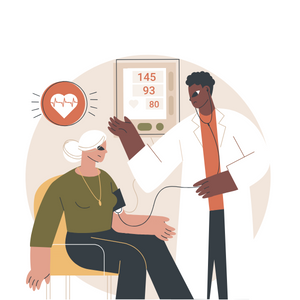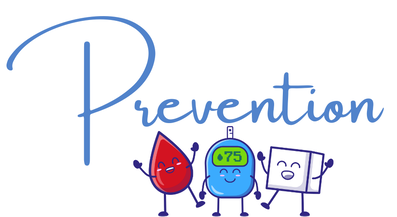Gestational diabetes is the sneaky thief that can creep up during your pregnancy, messing with how your cells use sugar (glucose). This leads to high blood sugar that can put both you and your little one at risk. But hey, take a deep breath, mama! The good news is that you can control this condition with a healthy diet, exercise, and medication if needed. Keeping your blood sugar in check can ensure a smooth pregnancy and delivery.
After delivery, your blood sugar usually bounces back to normal. However, if you've had gestational diabetes, you're more likely to get type 2 diabetes. So, keep an eye on your blood sugar levels and get tested regularly.
It's like a stealthy ninja, as most of the time, gestational diabetes doesn't cause any noticeable symptoms. But if you're feeling extra thirsty and running to the bathroom more often, it's worth getting checked out.
Before you start trying for a mini-me, it's smart to hop on over to your healthcare provider's office. Get a good check-up, including a peek at your risk for gestational diabetes and overall wellness. Once you're pregnant, your medical pro will keep a watchful eye on you throughout, including screening you for gestational diabetes as part of your prenatal care.
If you do get diagnosed with gestational diabetes, you'll have more checkups than usual. The final trimester is the key time for monitoring your blood sugar and your baby's health, so you'll be seeing your healthcare provider more frequently.
After delivery, your blood sugar usually bounces back to normal. However, if you've had gestational diabetes, you're more likely to get type 2 diabetes. So, keep an eye on your blood sugar levels and get tested regularly.
It's like a stealthy ninja, as most of the time, gestational diabetes doesn't cause any noticeable symptoms. But if you're feeling extra thirsty and running to the bathroom more often, it's worth getting checked out.
Before you start trying for a mini-me, it's smart to hop on over to your healthcare provider's office. Get a good check-up, including a peek at your risk for gestational diabetes and overall wellness. Once you're pregnant, your medical pro will keep a watchful eye on you throughout, including screening you for gestational diabetes as part of your prenatal care.
If you do get diagnosed with gestational diabetes, you'll have more checkups than usual. The final trimester is the key time for monitoring your blood sugar and your baby's health, so you'll be seeing your healthcare provider more frequently.
|
You should be tested for gestational diabetes in your 24th to 28th week of pregnancy. The American Diabetes Association also advises that you be tested for type 2 diabetes if you have risk factors for this condition. This testing should be done at your first prenatal visit.
Screening is done by these tests:
|
Symptoms
Gestational diabetes doesn't cause any symptoms. That’s why it’s important to get tested for it if you are at high risk. If your blood sugar levels are very high, you may have these symptoms:
Causes
Healthcare providers don't know what causes gestational diabetes. But they do know what happens. The placenta gives your growing baby nutrients and water. The placenta also makes several hormones to keep the pregnancy healthy. These hormones include:
During pregnancy, more fat is stored in your body, you take in more calories, and you may get less exercise. All of these things can make your blood sugar (glucose) levels higher than normal and possibly lead to gestational diabetes. As the placenta grows, it makes more of the hormones. The risk for insulin resistance becomes greater. Normally your pancreas is able to make more insulin to overcome insulin resistance. But if it can't make enough to overcome the effects of the placenta’s hormones, you can develop gestational diabetes. Risk Factors
Any woman can develop gestational diabetes during pregnancy. But you may be more likely to get it if you:
Treatment for gestational diabetes focuses on keeping your blood sugar levels in the normal range.
Treatment may include:
|
|
Women are generally advised to eat a balanced diet during pregnancy. This means making sure you have a varied diet rather than eating a lot of the same type of food, so the baby gets all the nutrients he or she needs. Most women can simply trust their appetite and don’t need to follow a special diet.
According to the research done so far, the only women who benefit from dietary changes are those who are overweight or obese. They can lower their risk of gestational diabetes by changing their diet with the help of a professional dietitian or nutritionist. The dietary changes can reduce their blood sugar levels and help them put on less weight in pregnancy. In women who have a normal weight, dietary changes don't have a preventive effect. Research has shown the following for women who are overweight (BMI > 25) or obese (BMI > 30):
|









